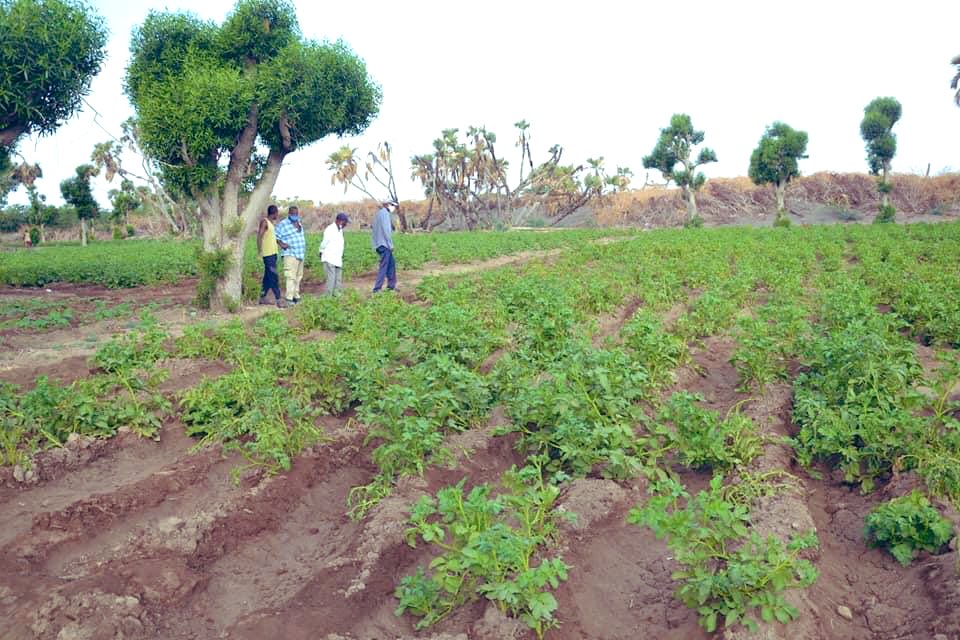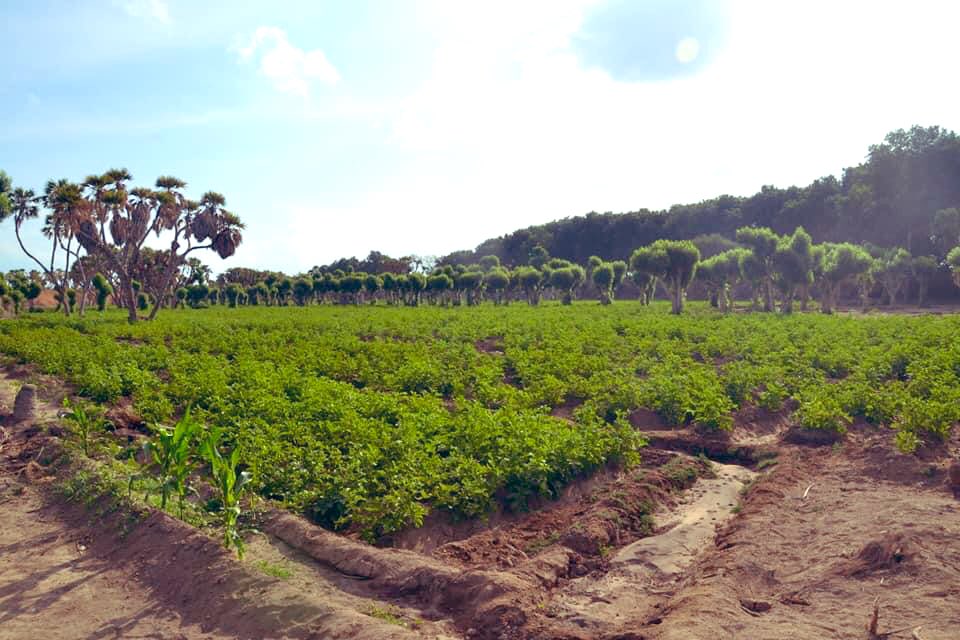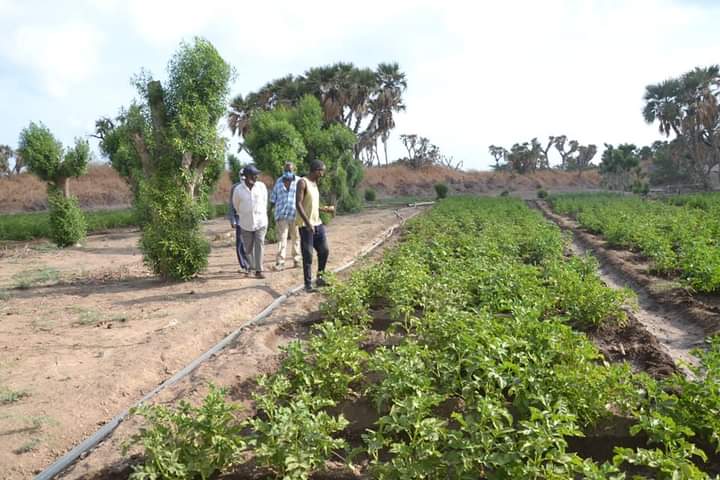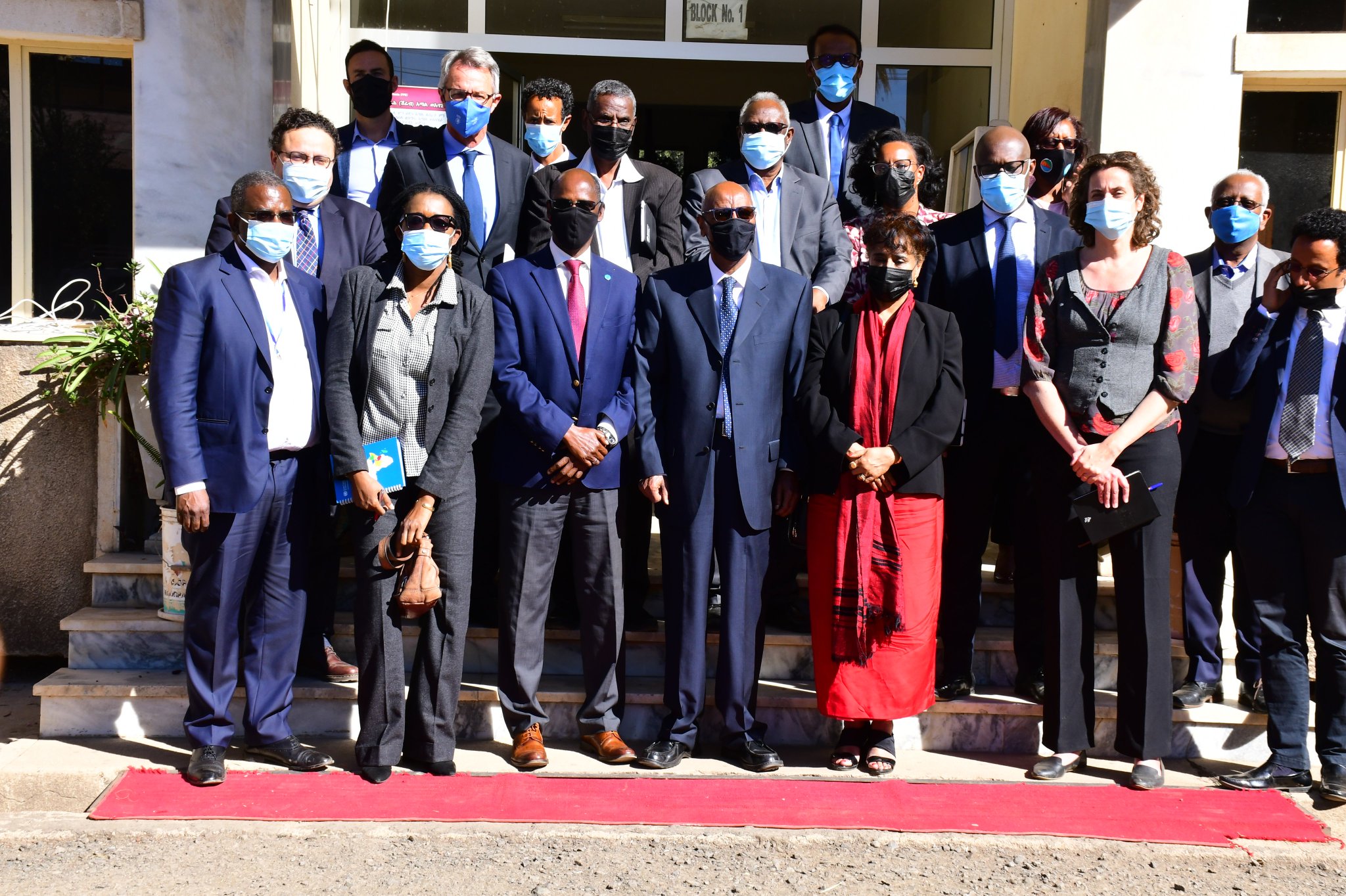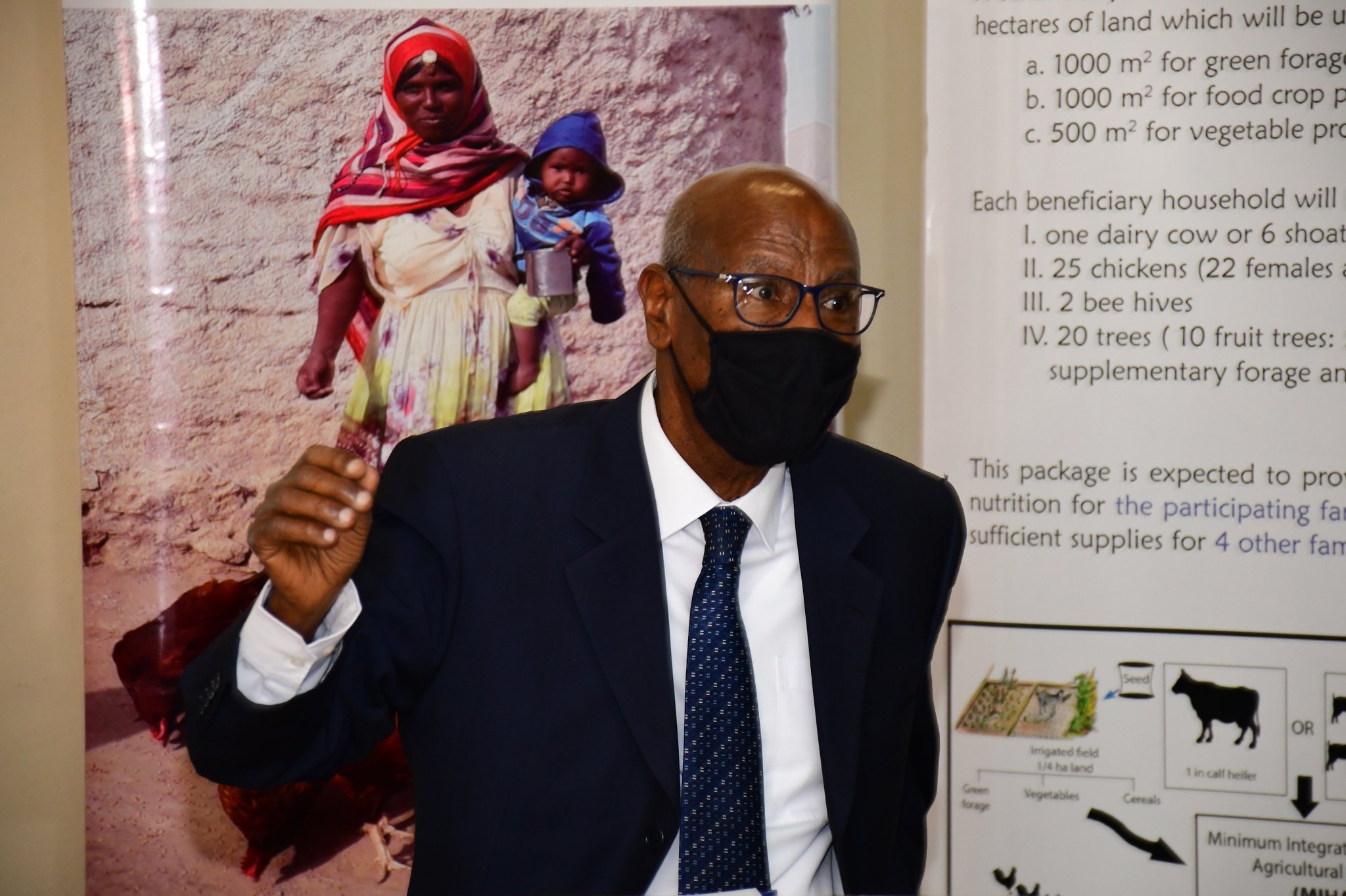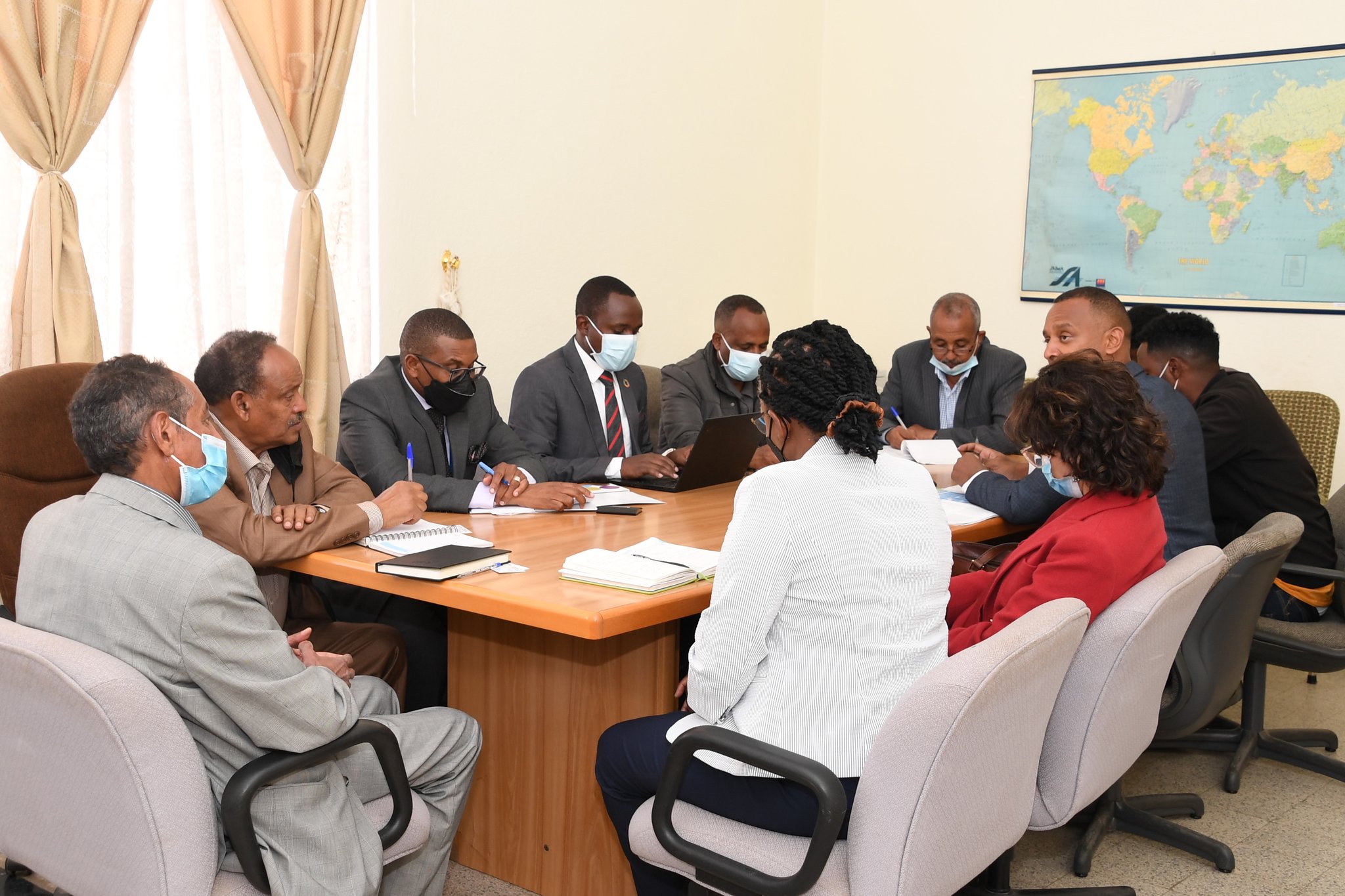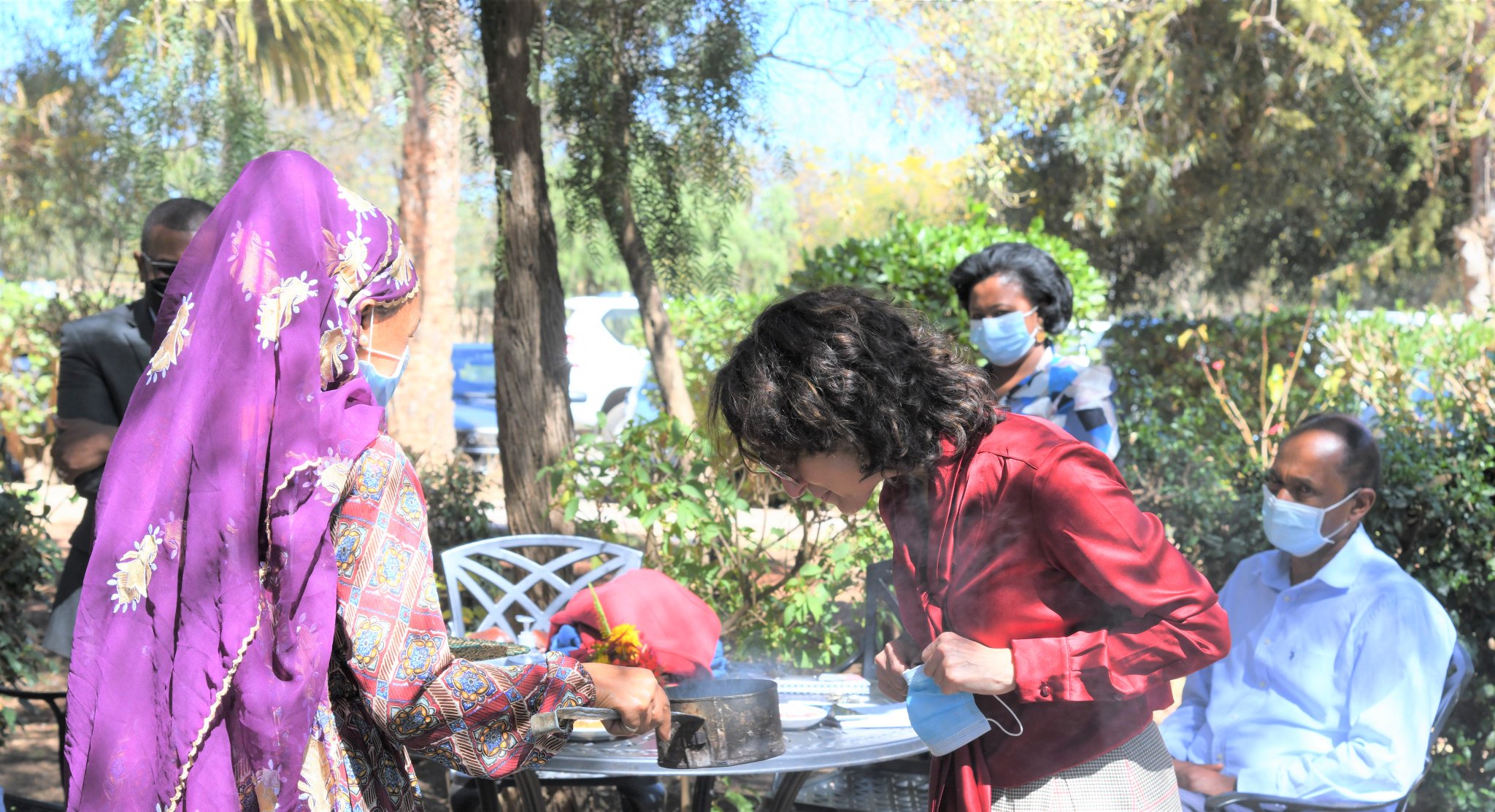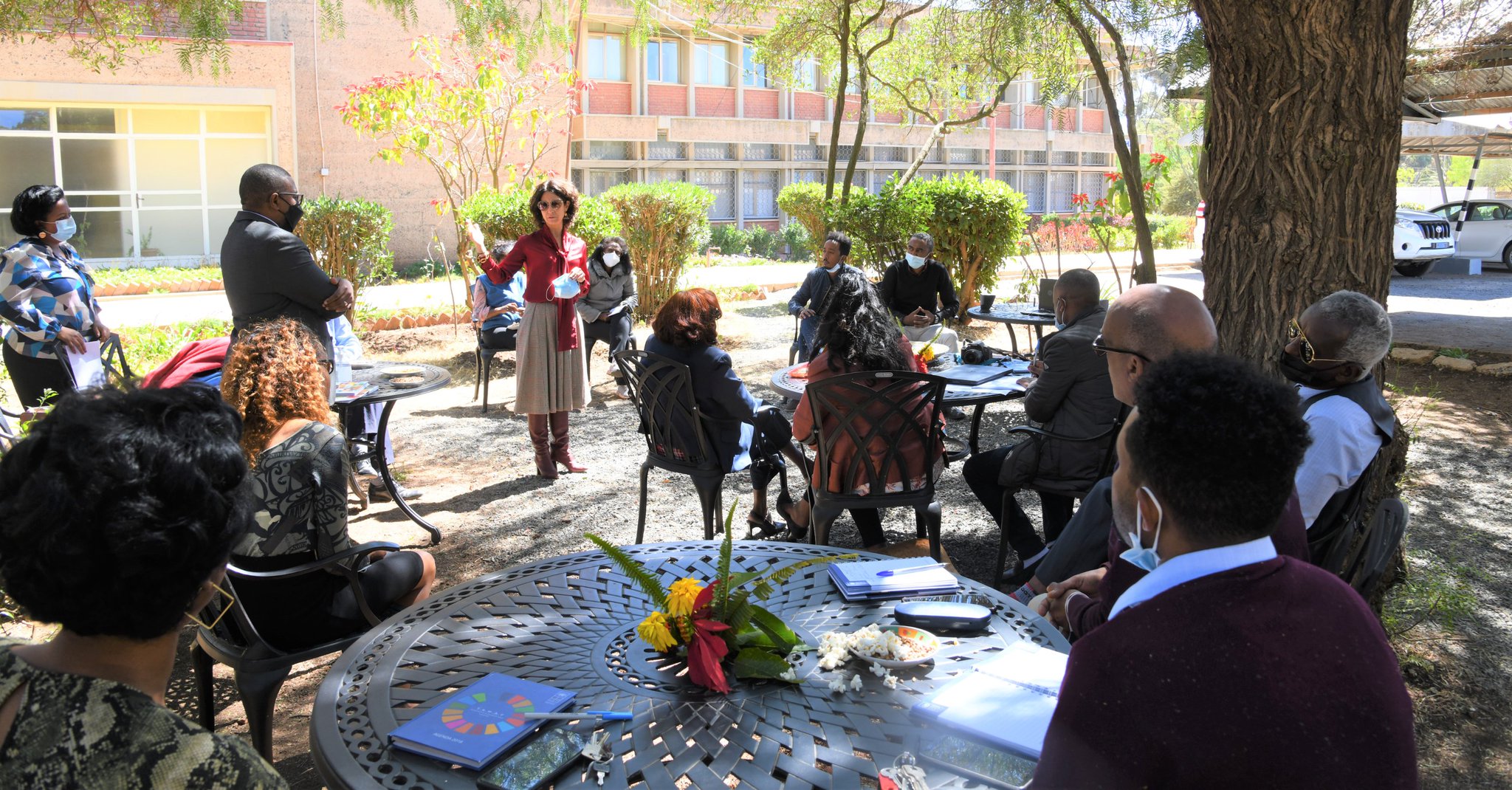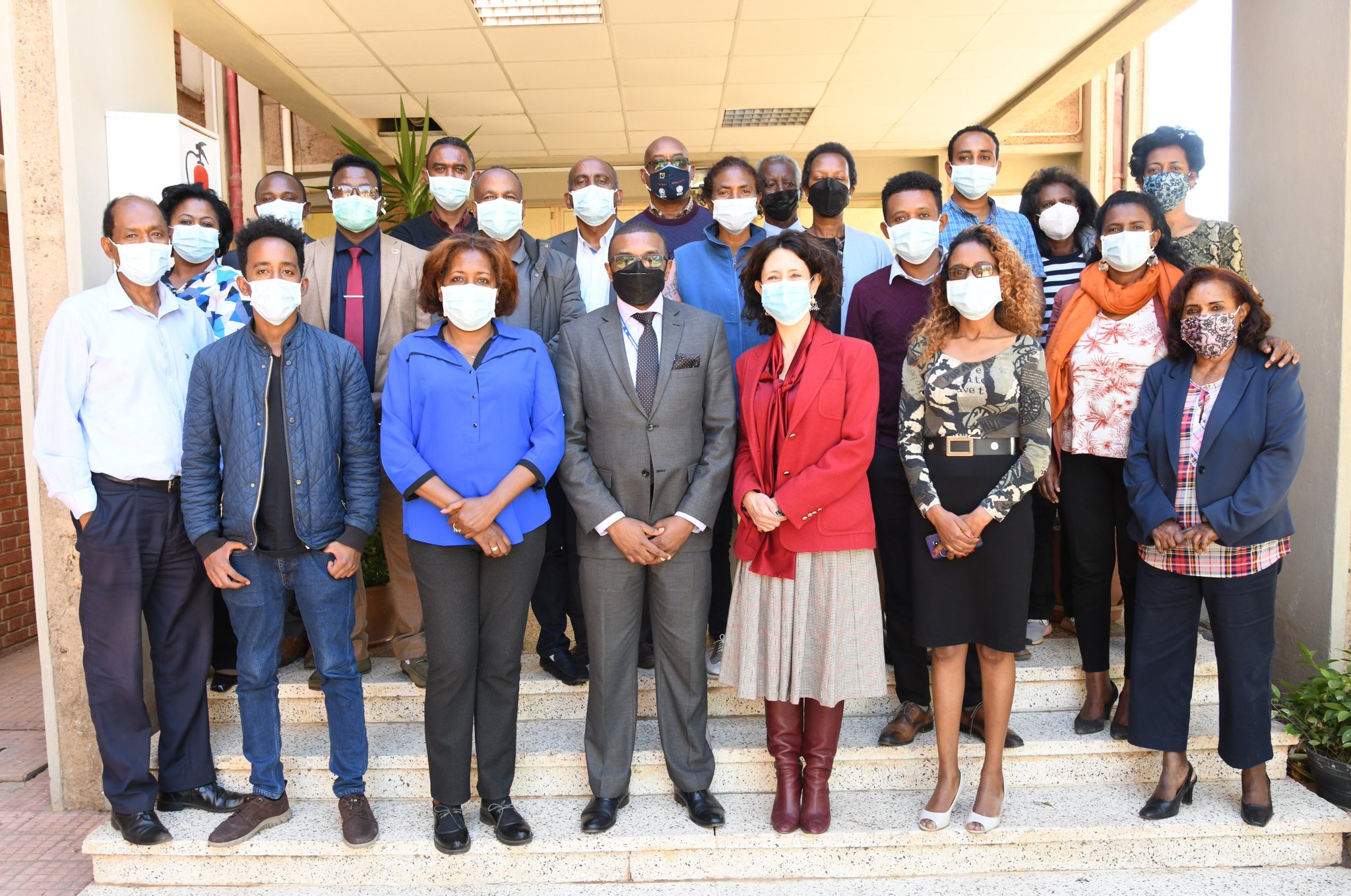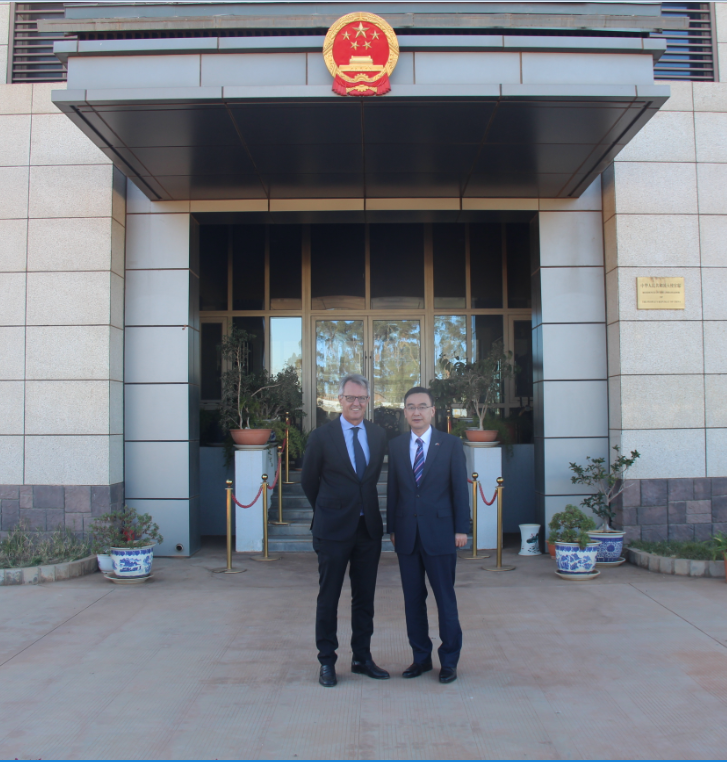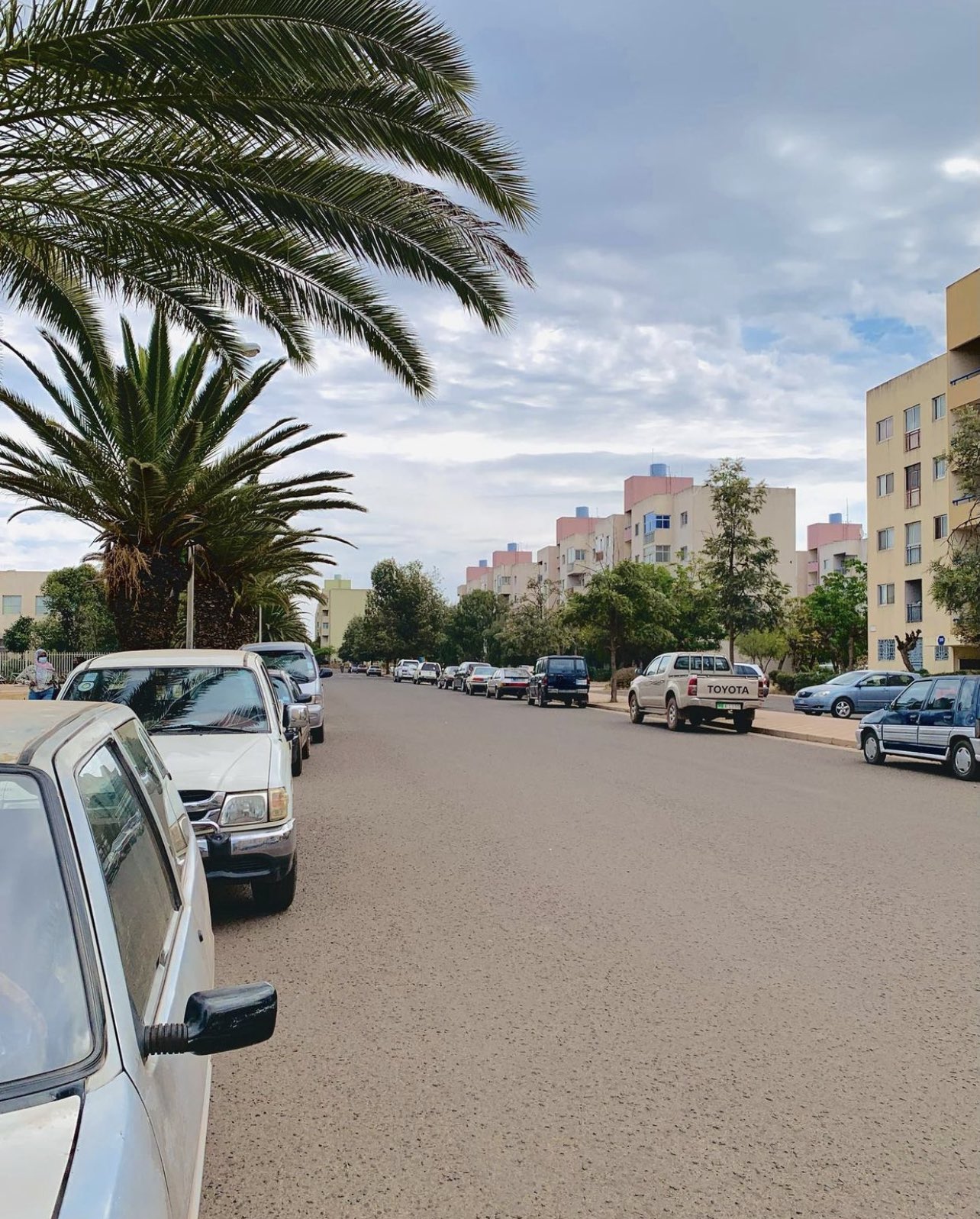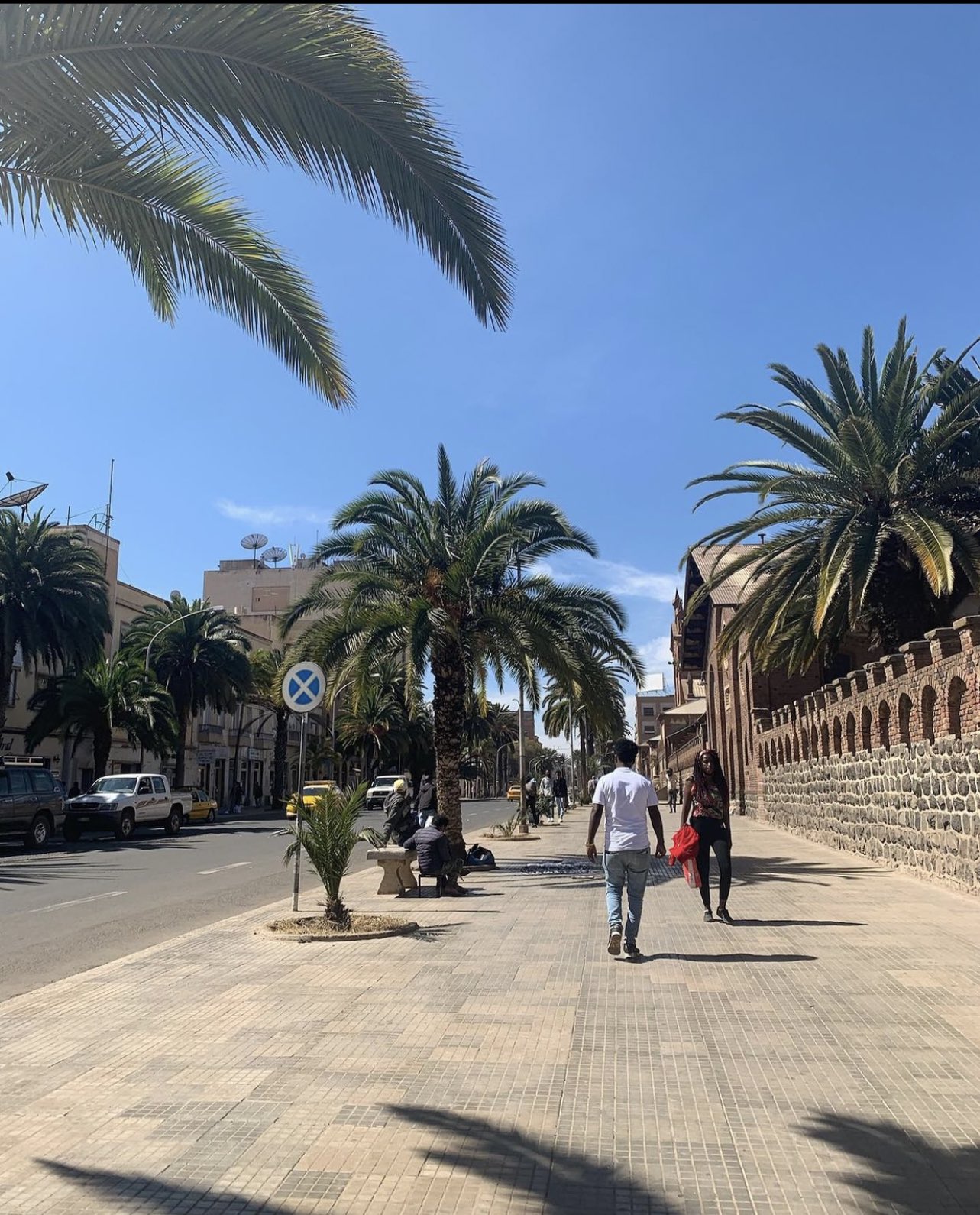Eritreans and Ethiopians:
Swedish Media, stop with your biased & false reporting!
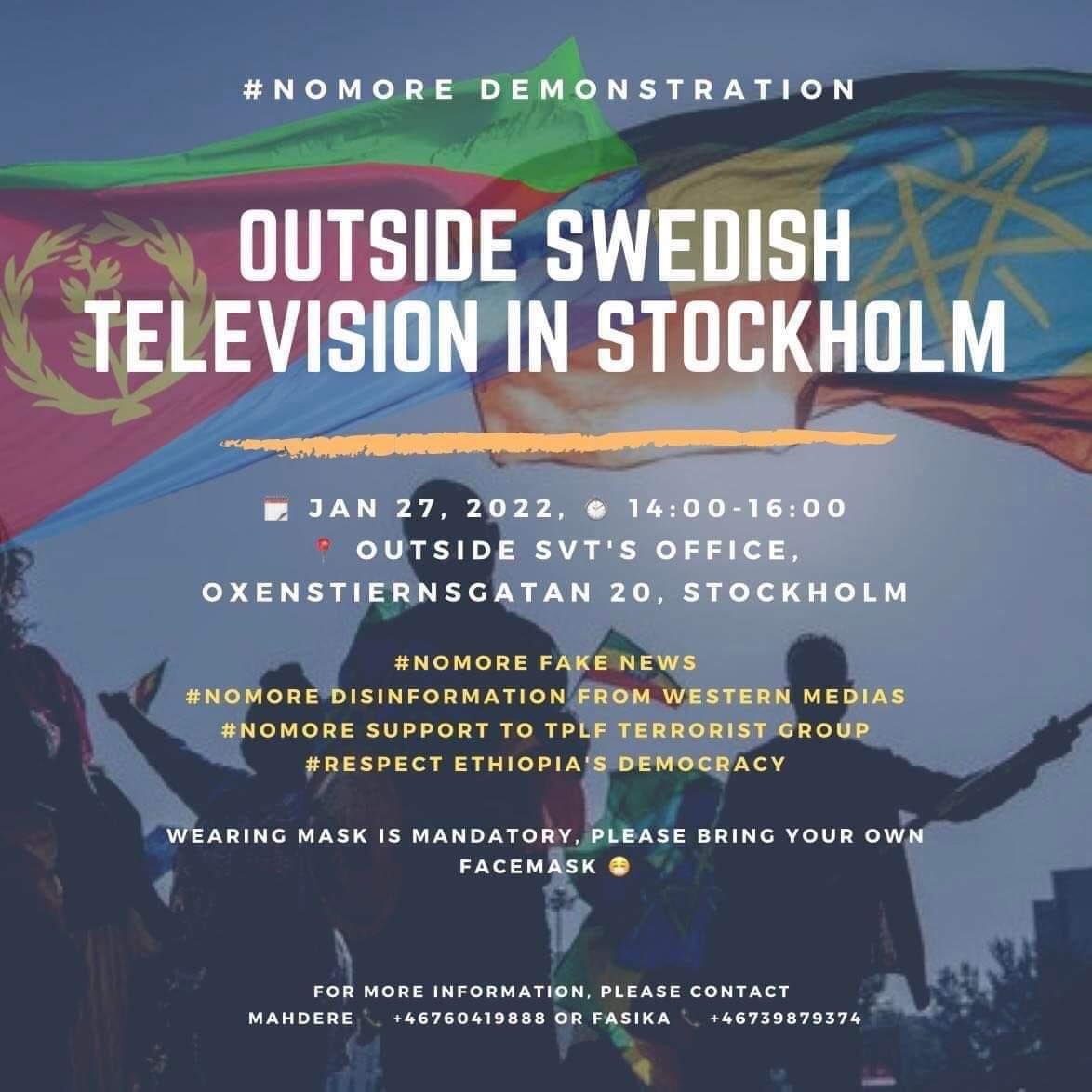
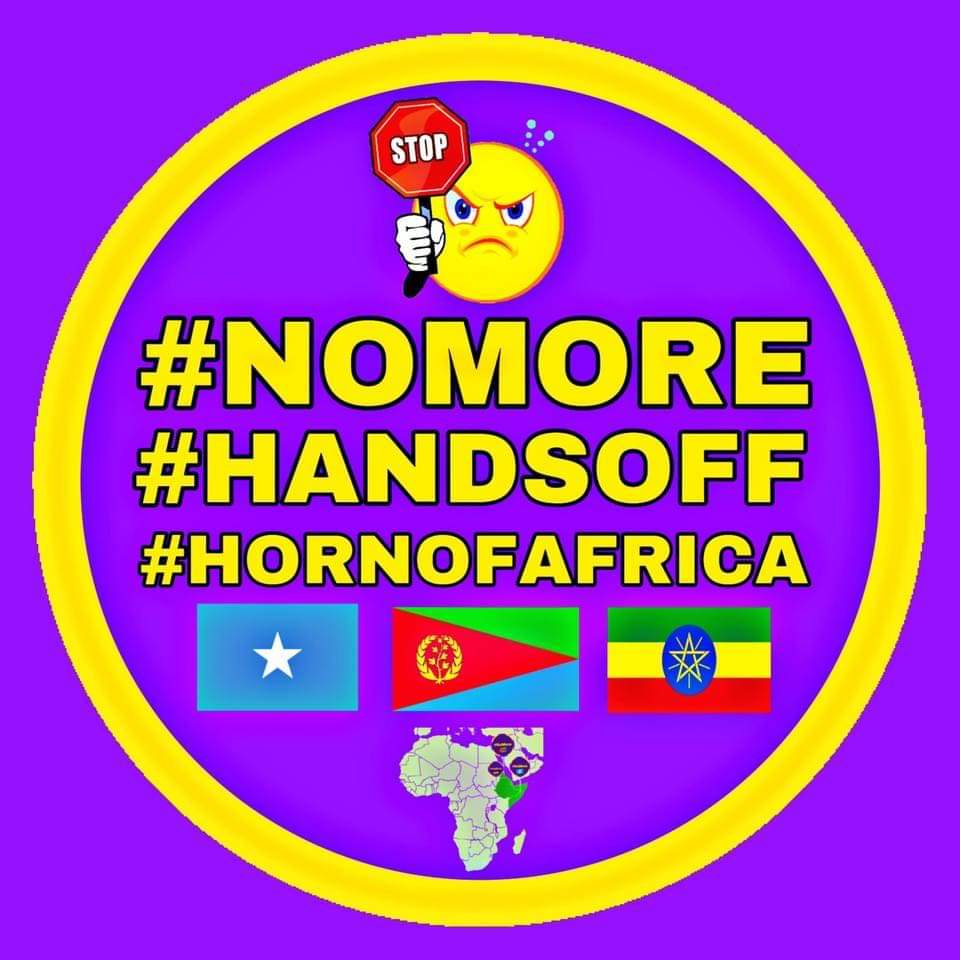
__________________
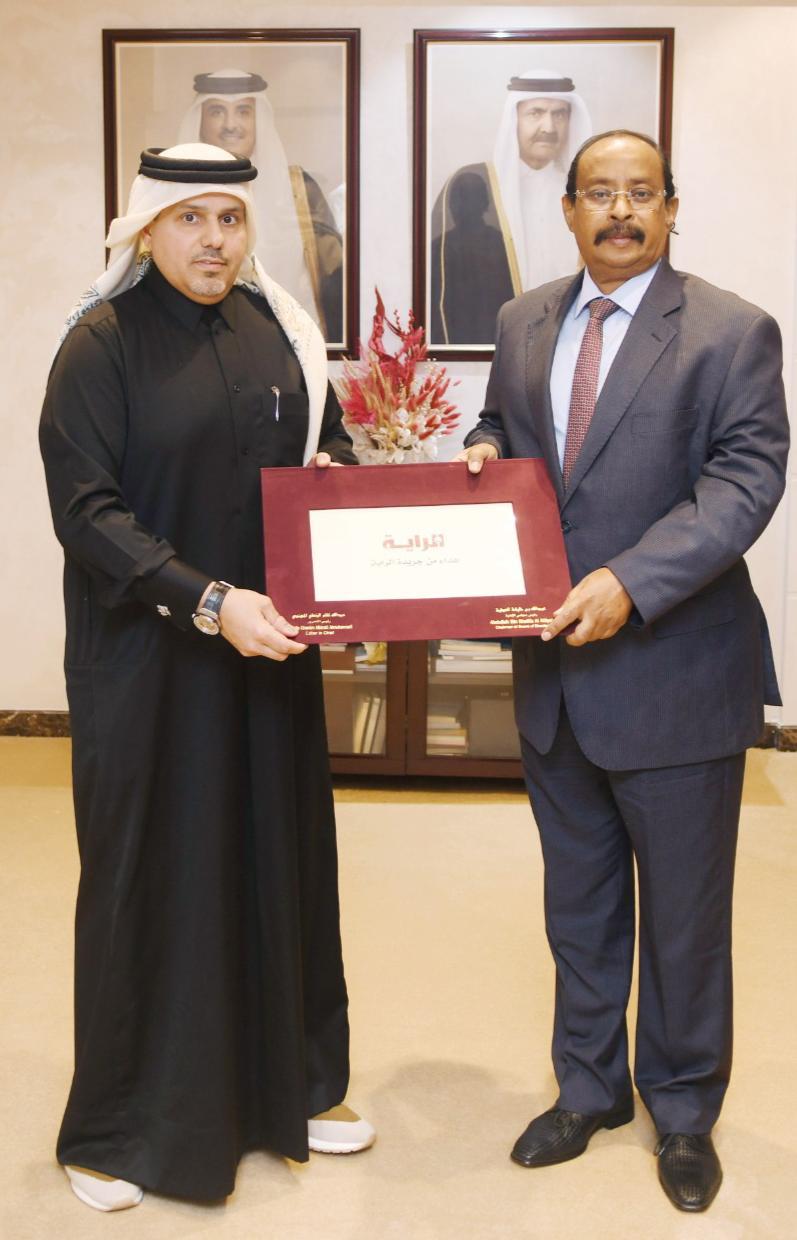 Today, 26/01/2022, Mr. Abdullah Ghanem Al-Binali Al-Mohannadi, Editor-in-Chief of Al-Raya, received the AMB of the State of Eritrea to Qatar H.E the AMB and Dean of the Diplomatic Corps: Ali Ibrahim, where the AMB praised the depth of the Eritrean-Qatari relations.
UM BROOD: @um_brood
Today, 26/01/2022, Mr. Abdullah Ghanem Al-Binali Al-Mohannadi, Editor-in-Chief of Al-Raya, received the AMB of the State of Eritrea to Qatar H.E the AMB and Dean of the Diplomatic Corps: Ali Ibrahim, where the AMB praised the depth of the Eritrean-Qatari relations.
UM BROOD: @um_brood
_________________________
 Meet Halla Henderson: Minnesota’s First Eritrean American (and of Lebanese Heritage) to Win School Board Seat
January 24, 2022
Meet Halla Henderson: Minnesota’s First Eritrean American (and of Lebanese Heritage) to Win School Board Seat
January 24, 2022
 Photo credit: twitter.com
By: Lolla Nur, Freelance Journalist
https://theuptake.org/2022/01/24/meet-h ... oard-seat/
Note: This interview took place in early November 2021. Quotes have been lightly edited for readability and brevity.
Hi Halla! Please introduce yourself and a bit more about your background.
Photo credit: twitter.com
By: Lolla Nur, Freelance Journalist
https://theuptake.org/2022/01/24/meet-h ... oard-seat/
Note: This interview took place in early November 2021. Quotes have been lightly edited for readability and brevity.
Hi Halla! Please introduce yourself and a bit more about your background.
My name is Halla Henderson,
https://twitter.com/hallaforspps I’m Lebanese and Eritrean-American. I recently (in fall 2021) won my Saint Paul Public Schools (SPPS) board campaign.
https://www.hallaforspps.com/ My father is an Eritrean immigrant, my mother is of Arab descent; she’s second generation Lebanese American.
I’m a daughter of immigrants but not an immigrant myself. I identify as biracial, and East African and Arab American.
How does it feel to win the campaign, particularly as the first Eritrean American to hold an SPPS board position in our state?
It feels really good! I struggled a lot with [the cultural identity piece] throughout the campaign cycle: how do I hold (my identity) and lean into it — recognizing that I’m first gen? I have connections to the [Eritrean] community but they’re not as strong as they could be. I think about how can I make sure I feel good and comfortable and make everyone feel proud in standing in that — without misrepresenting myself in some way.
By the time I got elected I realized it’s a win for the [Eritrean] community regardless, by people understanding that Eritrean people exist. We’re a relatively small community. We don’t always get attention or knowledge about our story. So it feels really good, and is something I’m holding and trying to cherish.
Is there a large Lebanese community in Minnesota?
There is a Lebanese community in Minnesota, but not as large as it used to be. My grandma came here when she was a baby and at that point there were two or so generations in the Midwest. A lot came through Michigan (the U.S. state with the largest Arab and Lebanese American community in the country) and stayed there. A lot found work in Iowa and Minnesota.
When and why did you start political organizing?
I started DFL politics and political organizing after the 2016 presidential elections. I could see what the impact [back then] was going to be. I worked for Representative
Dave Pinto (DFL 64B) as a youth organizer. I ran political campaigns at three college campuses and on Representative
Kaohly Vang Her (DFL 64A) campaign’s last cycle. I’ve also volunteered for other St. Paul political candidates throughout the years.
What was the process of doing outreach to immigrant communities during your school board campaign?
My roots are in mobilizing young people and renters and people excluded from the political process. Earlier this summer an Eritrean American friend and fellow organizer reached out about celebrating this milestone—my campaign in the community.
So we brought [Eritrean community members] together at Snelling Cafe
https://www.visitsaintpaul.com/directory/snelling-cafe/ a few weeks ago. (Snelling Cafe is a historically Eritrean owned business in the Little Africa
http://littleafricamn.org/my-account-2/listings business and cultural district, on Snelling Avenue in the Hamline Midway neighborhood of St. Paul, Minnesota).
[The event included Eritrean] elders and family members in the community. As a daughter you always want to make your parents proud. My father introduced me to people in his community he always admired. I was on the local Eritrean radio station talking about my experiences that we always listened to growing up.
That sounds like such a rich experience!
Yeah. What was powerful was that afterwards we went to visit some Eritrean women in the local leadership groups and that was great, to be in community with other women. They asked us good questions and they made me work for their vote! My hope is we can continue to do more of that. I’d love to continue to build in community and have conversations about what we do on the school board.
We also doorknocked in the Eritrean community in Saint Paul’s West 7th area. There’s a substantial group of new immigrant folks who live there. It tends to be hard to reach all the places you want to as a first time candidate. I wish we had more time and capacity to build more infrastructure in the Eritrean community.
 Photo credit: mnyouth.net
Why is culturally sensitive political engagement important?
Photo credit: mnyouth.net
Why is culturally sensitive political engagement important?
[My campaign organizers and I] talked about doing something at the Eritrean Community Center and having a conversation there as opposed to having people come to us.
Community engagement can be a transactional relationship. I hear a lot of people, when talking about immigrant communities, say,
Well, we just don’t know where they are.
Well, where are you looking? If you’re looking at mainstream spaces and institutions, most of my family is not going to show up. But they might show up at a restaurant where they know the owner. So, be intentional.
As a young organizer we know to find people closest to their home, like the café across the street or the community center in the basement in one of their neighborhood buildings. And we just stay there and build connections. That’s what I’m hoping to replicate. Immigrant communities are taken for granted in political space especially around policy and public schools.
Yes, and often the impact is that our communities’ voices, Eritrean, Ethiopian, Somali and larger immigrant and refugee voices, are left out of the political process.
Yeah, there’s a pervasive problem particularly in politics where we [political parties] expect, because these communities are often the ones with decisions being made about them, we just expect them to vote for us. But we don’t do a lot for community access for the things we campaign on.
Take the
Envision SPPS https://www.spps.org/Page/40755 plan — most schools being targeted for closures or shifting in programming are schools of new immigrant families. We have a high school that’s there to serve immigrant families and the plan is to shut it down, so what does that say to how we value our immigrant families?
We’re going to take away the resources that are important, but still expect immigrant families to show up at our campaigns and events. I don’t have the full answer on this now but it’s a matter of holding us (policy makers) accountable.
I was talking to a lot of folks who said,
I don’t know why I vote, if I vote people in and every year they fail to do the smallest thing for my family to survive and succeed.
I don’t know that enough people in politics have grappled with that. I think there’ll be serious ramifications to the work we do if we continue to take those votes for granted.
What is your vision for Saint Paul Public Schools? What do you hope for immigrant/refugee students and families of color?
My vision is continuing to make sure we’re actively recruiting teachers of color, teachers who have our shared lived experiences. That’s something I’m going to fight the school district to be held accountable. I’m trying to think about best ways to reduce harm in community: how are we engaging families around school closures? Are we in the school building and community centers, talking to folks about how this will roll out?
What were the highlights of your campaign?
My campaign team is a team of young people. I had three high schoolers on my team. We had immigrant and first generation folks on my team. I could not have built the platform we built without them. They were there with me from day one, intentionally engaging young people. We hear what parents are saying but what do you think as a middle or high schooler?
I call them the future of St. Paul politics, they brought a level of energy and excitement into spaces and made me feel so sure of what we’re doing and why. My team was phenomenal.
What were some challenges of running a political campaign?
A challenge early on was convincing people that I was smart enough and had the experience, that I was deserving to be in those spaces. That’s a familiar challenge for young women of color. I had plenty of people tell me,
You don’t know what you’re talking about, you’re just doing this because you’re a Black person.
The thing is, I wasn’t running on my identity. It was something I was proud about but it was people making judgements about who I was. I was able to get through it because I had a group of people to support me through.
That’s amazing haftey. I can feel your conviction and determination.
Thank you. I mean, to go from underfunded to running a citywide race without a lot of money — the highlights were being able to connect with young people and make sure they were represented.
I grew up in a community that was the most taken for granted and the first one on the chopping block. I held that a lot and was mindful of that as we were canvassing, being intentional about not taking folks for granted and being in community with them.
Now that you’ve won, what’s next for you?
I want to experience what serving at this level feels like before I make any further decisions about working in government. Government and policy is something I plan to continue to do, but at this point I’m just focused on serving our Saint Paul kids.
